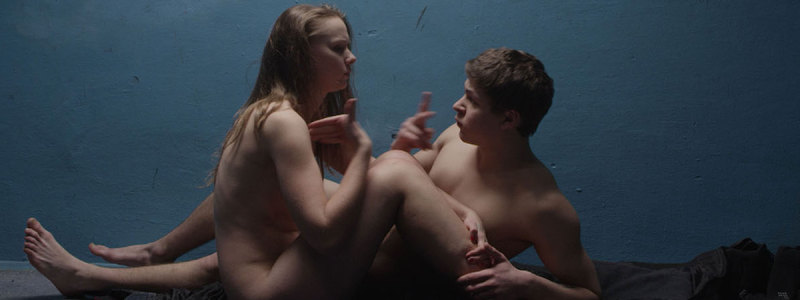
The opening sequence of the highly acclaimed film The Tribe reminds you there are no translations, no subtitles or voice overs (nor any kind of musical score) but that doesn’t quite prepare you for this strange and challenging film.
‘For love and hatred, you don’t need translation’ according to the film’s young Ukrainian writer-director Miroslav Slaboshpitsky. With a cast of non-professional deaf actors, the action takes place in an eerie silence, broken only by the everyday sounds of cars, footsteps, barking dogs and violence.
The film is set in Ukraine, in a run-down school for the hearing impaired where a new student (Grigoriy Fesenko) is instantly made aware that he’s in a dark, lawless world in which older students make the rules. It’s been compared to Lord of the Flies and If, except this world also contains girls and with them prostitution and abuse, as well as brief moments of a more tender relationship. It’s unflinching in its explicit portrayal of sex and violence, some of it literally unwatchable.
As a person with hearing you are on the outside watching an alien world, a position underlined by a fixed camera that places you at a distance, sometimes with an interrupted view. While dialogue isn’t necessary to follow what’s happening, you don’t always understand what’s about to happen, which adds an extra sense of shock to the brutal events. There are some extraordinary, unforgettable scenes, like when a large group of students are watching a fight and the animated flapping movements of their signing makes it appear like a choreographed modern dance. Some of the most shocking moments are the ones that remind you how vulnerable people are if they can’t hear what’s approaching.
Everything, from the arrangement of scenes, sound and camera are skilfully brought together to explore disturbing themes of power, humiliation and corruption, themes which the careful placing of Ukrainian flags, and a map that locates the country in Europe, suggest are also a commentary on the wider political situation.
